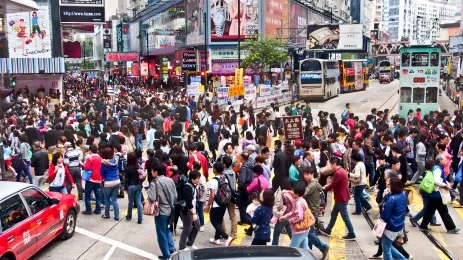
Weekly News Wrap: Apps turning leftovers to meals take off in Asia; China's Luckin Coffee eyes store expansion
And a Beijing consumer group summons grocery firm Missfresh over complaints.
From Bloomberg:
Across Asia, tech startups are taking food otherwise destined for landfill and providing discounted meals through mobile phone apps.
About a third of food is lost or wasted every year globally, and the mountains of waste are estimated to cause 8-10% of greenhouse gas emissions such as methane, the United Nations says. The Asia-Pacific region is among the worst in the world for food waste, accounting for more than half of food squandered globally.
“A common mantra that I have is that being sustainable should be attainable,” said Preston Wong, chief executive officer and co-founder of treatsure, which collaborates with hotel chains to allow app users to pick out and collect a “buffet-in-a-box” of food that would otherwise be thrown out. “I think technology can bridge that gap,” he said.
From Reuters:
Two years after it was forced to withdraw from the Nasdaq for accounting fraud, China's Luckin Coffee believes it has emerged from its "darkest moment", and said it remains committed to U.S. capital markets as it expands its stores and sales.
Luckin admitted in 2020 that about $310m of its sales were fabricated in the previous three quarters, bringing the coffee maker to the brink of collapse after having blazed a trail as a homegrown challenger to US coffee giant Starbucks.
"That was Luckin's darkest moment. The company was facing a huge crisis at the time", David Li, chairman and chief executive of Chinese private equity firm Centurium Capital, told Reuters, referring to the accounting fraud.
Luckin delisted from Nasdaq following the financial scandal, shocking Wall Street investors.
From Reuters:
A Beijing consumer rights group has asked Missfresh to work on plans to refund its customers and explain how it will rectify its business after receiving complaints, adding to pressures facing the Tencent and Tiger Global-backed grocery startup.
The government-backed Beijing Consumer Association said in a statement on its website on Tuesday that a large number of Missfresh customers had complained about the platform's "abnormal operations".
Missfresh did not immediately respond to a request for comment.
The grocery delivery firm's troubles come as China's tech sector grapples with slowing growth amid COVID-19 lockdowns and tightening regulatory oversight.
The company pioneered one-hour fresh food delivery services in China, a model that is extremely popular with consumers but is labour and capital-intensive.



















 Advertise
Advertise






